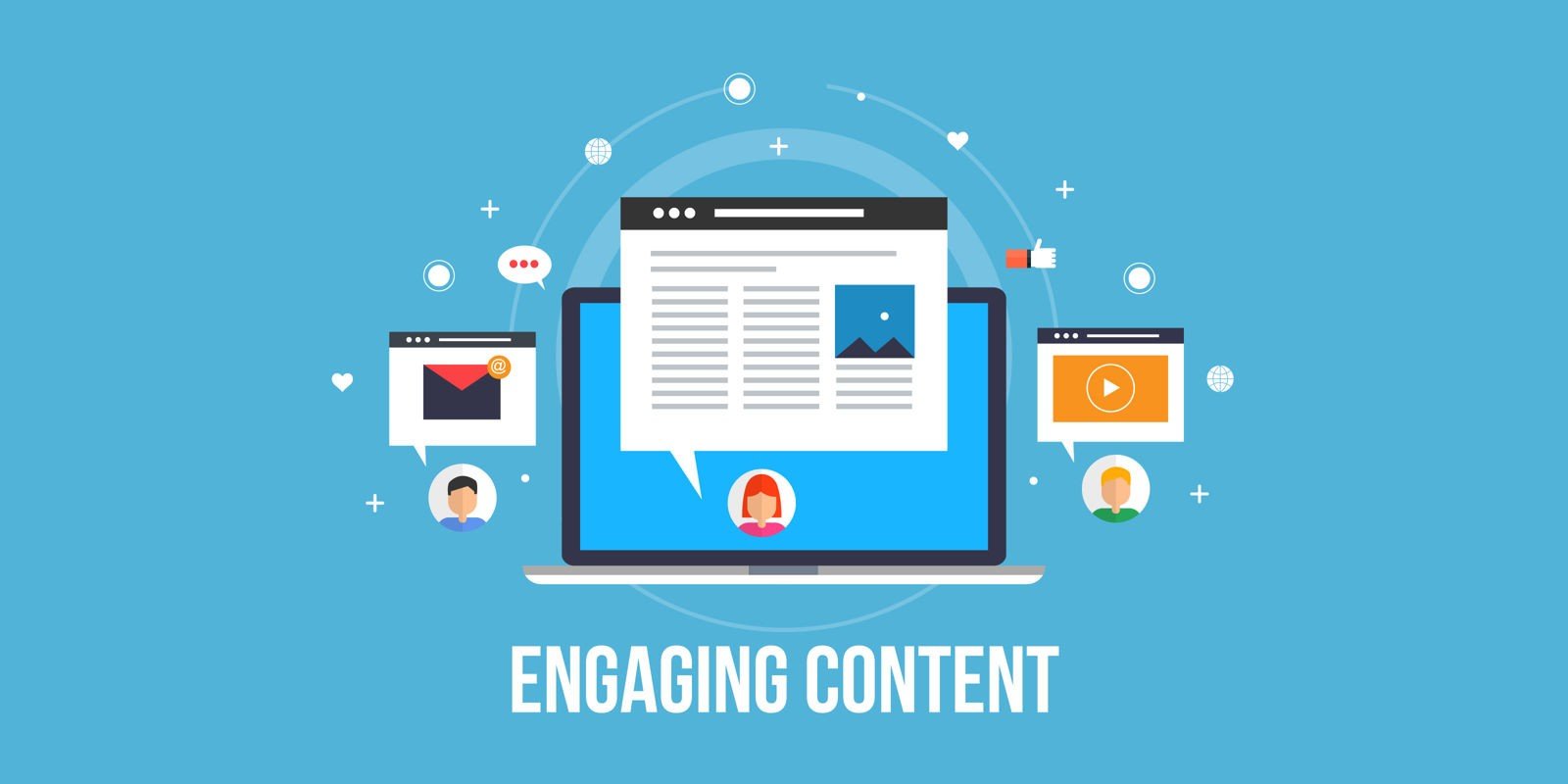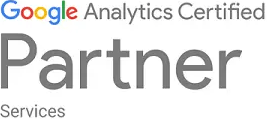Australian business owners need to find a way to make their offerings and brand stand out in a crowded digital space. WordPress has become a popular platform to help achieve that, with literally millions of organisations of all sizes leveraging the host of user-friendly features available to get started online.
If you are a growing business and itching to get a website that looks not only aesthetically pleasing but also ranks high on search engines, our experts at Digital Eagles have compiled some tips on how to develop and design an SEO-friendly WordPress website, which greatly affects your business visibility and customer engagement online.
This will, in turn, put your business on Australia’s digital map, driving substantial organic traffic and revenue.
Whether you’re just getting started in the digital space, or you’re a venerable titan in your industry, these tips from a leading WordPress website development company are designed to help your target pages achieve and maintain higher search engine rankings.
How to Set Up an SEO-Friendly WordPress Website
SEO Friendly Website Tip #1: Choosing the Right WordPress Theme for SEO Optimisation
Selecting the right theme for your WordPress site can be overwhelming, given the number of choices available. When ranking on SERPs is a primary consideration, however, a WordPress SEO consultant would make a few fundamental pointers:
- Light-weight Theme: Choose a light and fast-loading theme, as website speed is a key factor for SEO. Avoid themes heavy with unnecessary features to prevent slow loading times.
- SEO-Optimised Theme: Some themes are specifically optimised for SEO, with SEO-friendly features built into the website to give you a head start.
- Frequent Updates: Ensure the theme is regularly updated by its development company. Updates often bring new features, security patches, and bug fixes, contributing to better site performance and SEO.
- Responsive Design: Select a theme with a responsive design. Google prioritises mobile responsiveness in its ranking algorithm, so a theme that adjusts smoothly to different devices and screen sizes is non-negotiable.
SEO Friendly Website Tip #2: Optimising Meta Data, Title Tags, Permalinks and More in WordPress
A WordPress website development company will often start with metadata and title tags. Their optimisation is a fundamental aspect of SEO that can give you an edge, and here is an insight into how, as an Australian business owner, you can optimise this:
- Meta Data Optimisation: Metadata summarises your page content and appears in Google’s search results. Crafting compelling meta descriptions can boost click-through rates, which Google rewards. Focus not just on keywords, but also on creating engaging descriptions with strong call-to-action phrases.
- Title Tags: These are crucial as they appear in search results, browser tabs, and on social media. Title tags should serve two purposes: accurately describing your content for search engines and enticing users to click. Keep them under 60 characters, incorporate targeted keywords, and make them appealing to human readers.
- Permalinks: These are the unique web addresses of your pages and posts, vital for SEO. They help search engines understand your content. WordPress offers easy customisation of permalinks for better SEO alignment.
SEO Friendly Website Tip #3: The Importance of XML Sitemaps for Your WordPress Website
An XML sitemap acts as a list of all the URLs that are part of your website. It helps Google and other search engines understand the structure of your site, making it easier for them to crawl and index your pages. WordPress makes creating an XML sitemap relatively effortless, with numerous plugins available, like ‘Yoast SEO‘ and ‘Google XML Sitemaps‘ that help you generate a sitemap with just a few clicks.
SEO Friendly Website Tip #4: Optimising Your Site’s Speed
Another important consideration for a WordPress website development company or consultant is your website’s speed. Speed is a significant SEO factor, as Google prefers pages that load quickly to improve user experience.
Speeding up your WordPress site requires several steps, including using a reliable hosting provider, optimising your images, limiting the number of plugins you use, and implementing a caching solution.
The more changes you make, the more your site speed will change, so be sure to continuously monitor your website’s speed to ensure optimum performance.
SEO Friendly Website Tip #5: Building High-quality Backlinks
Backlinks are inbound links to your target pages from other websites. They’re like votes of confidence from these sites, signalling to search engines that your content is valuable and deserves a higher ranking. The more authoritative the site referring your pages, the more credibility you will hold with search engines, and, as a result, the further you will move up SERPs.
You can earn backlinks by creating high-quality, informative content that other sites want to link to, as well as reaching out to complementing brands in your industry. Investing time in building a number of high-quality, authoritative and genuine backlinks to your WordPress site can drastically improve your SEO performance.
SEO Friendly Website Tip #6: Securing Your WordPress Website
Ensuring the security of your WordPress website is critical not only for protecting your business and customers but also for safeguarding your SEO efforts. Again, platforms like Google want to protect their users, so they will always prop up businesses investing in a range of security measures, including:
- Update Regularly: WordPress frequently rolls out updates that fix security vulnerabilities. By keeping your WordPress version, themes, and plugins up-to-date, you protect your website from potential threats.
- Use Strong Passwords: It may seem obvious, but strong, unique passwords are your first defence against possible security breaches.
- Choose Reliable Plugins: Fragmented plugins can be a major security risk. Always opt for reliable, well-rated plugins, and delete any inactive ones that are taking up space.
- Implement SSL encryption: Secure Socket Layer (SSL) encryption provides an added layer of protection against hackers and increases trust among visitors, which can also benefit SEO.
- Regular Backups: Make regular backups of your site so that if something goes wrong, you can restore it to an earlier version without losing all of your work.
Securing your WordPress website might take a little extra time and effort, but every SEO-friendly website development company and consultant will endorse its potential benefits.
SEO Friendly Website Tip #7: Utilising Keywords
Keywords are the lifeblood of your SEO strategy. They are the bridge that connects online users to your business. When visitors input these keywords into search engines like Google, they’re brought directly to your website.
But how exactly do you effectively utilise these SEO cornerstones on your WordPress website? Let’s explore some useful tips and tricks:
- Identifying Relevant Keywords: Start by pinpointing keywords relevant to your business, understanding what your audience searches for. Use tools like Google Keyword Planner to find targeted keywords, considering search volume, competition, and relevance.
- Strategic Placement: Place keywords thoughtfully in titles, meta descriptions, headers, and website content, helping search engines easily find and index your content.
- Avoid Keyword Stuffing: Be cautious not to overuse keywords, which can negatively impact your SEO and user experience. Aim for natural, engaging content that smartly incorporates keywords.
- Leverage Long-Tail Keywords: Utilise long-tail keywords, which are specific and often used by people close to a decision or during voice searches. Despite lower search volumes, they typically lead to higher conversion rates due to more precise search intent.
- Monitoring Performance: Regularly track your keywords’ performance to understand your strategy’s effectiveness and make necessary adjustments. Tools like Google Analytics and Google Search Console are helpful for this monitoring.
SEO Friendly Website Tip #8: Creating SEO-Friendly Content on Your WordPress Website
Creating SEO-friendly content is key to attracting more visitors to your site and an excellent way to engage with your audience while boosting your ranking in search engine results.
Here are a few tips to ensure your content is SEO-optimised on your WordPress website.
- Creating SEO-Friendly Content in WordPress: SEO-friendly content is essential for attracting visitors and engaging with your audience, enhancing your search engine rankings.
- Focus on Quality Content: Prioritise creating high-quality content that offers value to your readers, addressing their questions and issues. Understand your audience’s needs and tailor your content accordingly.
- Incorporate Long-Tail Keywords: Utilise long-tail keywords—longer, more specific phrases that are less competitive and more targeted towards your specific offerings, like “WordPress development company & SEO services in Australia” instead of just “development services.”
- Utilise Rich Media: Make your content more engaging and dynamic with images, videos, and infographics. This can increase the time users spend on your site, positively impacting SEO. Use the alt text feature in WordPress to describe images for better SEO.
- Integrate Internal and Outbound Links: Use internal links to direct readers to other relevant pages on your site and outbound links to cite credible sources. Balance is crucial; avoid excessive linking that might lead visitors away too soon.
Addressing Common SEO Pitfalls in WordPress Website Development
For a successful WordPress website, it also helps to recognise and address common SEO pitfalls to enhance your site’s ranking and search engine performance:
- Failing to Optimise Headers: Headers are a small, but key touchpoint for your SEO-friendly website, guiding users and search engines to understand your content. Optimise your headers by including relevant keywords and maintaining a logical hierarchy with ‘H’ tags.
- Broken Links: Broken links harm both SEO and user experience, potentially increasing bounce rates. Conduct a regular WordPress website audit to identify and fix broken or dead links.
- Content Duplication: Duplicate content is penalised by search engines and diminishes content quality. Ensure each page and section of your website has unique, high-quality content.
- Old Content: Updating old content is often overlooked but is critical for SEO, too. Search engines favour fresh, updated content, so regularly revisiting and refreshing older posts can boost SEO.
Being aware of these common issues and knowing how to tackle them after a WordPress website audit will make developing a successful WordPress website all the easier.
Conduct a Free WordPress Website Audit with an Experienced Consultant
Eager to learn if there is more you can do to make your website more SEO-friendly? With Digital Eagles, we can offer a FREE WordPress website audit from our experienced SEO consultant team, providing a tailored strategy to help you climb to the top of search engine results pages. To learn more, please contact us today!



















